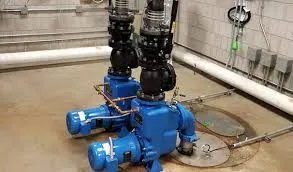Zulu
- Afrikaans
- Albanian
- Amharic
- Arabic
- Armenian
- Azerbaijani
- Basque
- Belarusian
- Bengali
- Bosnian
- Bulgarian
- Catalan
- Cebuano
- Corsican
- Croatian
- Czech
- Danish
- Dutch
- English
- Esperanto
- Estonian
- Finnish
- French
- Frisian
- Galician
- Georgian
- German
- Greek
- Gujarati
- Haitian Creole
- hausa
- hawaiian
- Hebrew
- Hindi
- Miao
- Hungarian
- Icelandic
- igbo
- Indonesian
- irish
- Italian
- Japanese
- Javanese
- Kannada
- kazakh
- Khmer
- Rwandese
- Korean
- Kurdish
- Kyrgyz
- Lao
- Latin
- Latvian
- Lithuanian
- Luxembourgish
- Macedonian
- Malgashi
- Malay
- Malayalam
- Maltese
- Maori
- Marathi
- Mongolian
- Myanmar
- Nepali
- Norwegian
- Norwegian
- Occitan
- Pashto
- Persian
- Polish
- Portuguese
- Punjabi
- Romanian
- Russian
- Samoan
- Scottish Gaelic
- Serbian
- Sesotho
- Shona
- Sindhi
- Sinhala
- Slovak
- Slovenian
- Somali
- Spanish
- Sundanese
- Swahili
- Swedish
- Tagalog
- Tajik
- Tamil
- Tatar
- Telugu
- Thai
- Turkish
- Turkmen
- Ukrainian
- Urdu
- Uighur
- Uzbek
- Vietnamese
- Welsh
- Bantu
- Yiddish
- Yoruba
- Zulu
Telephone: +86 13120555503
Email: frank@cypump.com
Aug . 30, 2024 15:30 Back to list
slurry pump seals
Understanding Slurry Pump Seals Importance and Types
Slurry pumps play a crucial role in various industrial applications, particularly in the mining, mineral processing, and wastewater treatment sectors. These pumps are designed to handle abrasive and viscous materials, making them essential in transporting slurries, which are mixtures of liquid and solid particles. One of the most vital components of a slurry pump is its seal, which helps maintain the efficiency and longevity of the pump while preventing leakage and contamination.
The Importance of Slurry Pump Seals
Seals in slurry pumps serve several key functions. Firstly, they prevent the slurry being pumped from leaking out of the system. This is critical not only for maintaining operational efficiency but also for ensuring safety and compliance with environmental regulations. Secondly, seals protect the internal components of the pump, such as bearings and impellers, from abrasive particles that can cause wear and tear, leading to costly downtimes and repairs. Furthermore, the integrity of the seal contributes to the overall reliability of the pumping system, reducing the frequency of maintenance activities.
Types of Slurry Pump Seals
There are several types of seals used in slurry pumps, each designed to cater to specific operational needs and environmental conditions. Here are the most common types
slurry pump seals

1. Mechanical Seals These are widely used in various pumping applications due to their effective sealing capability. Mechanical seals consist of two flat surfaces—one rotating and one stationary—pressed together by a spring. They are particularly suited for high-pressure and high-temperature services, providing a reliable barrier against leaks.
2. Packing Seals Often found in older pump designs, packing seals use a series of braided fibers (packing) placed around the shaft. This type of seal is more cost-effective but may require frequent adjustments and maintenance. While suitable for certain applications, packing seals can become less efficient over time, leading to increased leakage.
3. Lip Seals Also known as radial seals, lip seals are used to prevent leakage of fluids and are suitable for lower pressure applications. They consist of a flexible lip that maintains contact with the shaft and provides a barrier against contaminants. While they are effective for light-duty applications, they may not withstand the abrasive characteristics of certain slurries.
4. Expeller Seals These seals utilize the pump's own impeller to create a pressure differential that helps keep the slurry contained within the pump. Expeller seals are particularly effective in high-flow applications and can be an excellent solution for minimizing leakage without requiring a lot of maintenance.
Conclusion
In conclusion, slurry pump seals are integral to the performance and reliability of slurry pumps in various industries. The choice of seal type depends on the specific application requirements, including the characteristics of the slurry being transported and the operating conditions of the pump. By selecting the appropriate sealing solution and ensuring regular maintenance, companies can enhance the efficiency of their slurry pumps, minimize environmental impact, and reduce operational costs. Understanding the intricacies of slurry pump seals is essential for industrial operators aiming to optimize their systems and achieve long-term success.
-
Custom Drilling Mud and Slurry Pump Supplier - High Efficiency, Tailored Solutions
NewsJun.10,2025
-
Supply Vertical Submersible Sewage Pump High-Efficiency WQ/QW Pumps Supplier
NewsJun.10,2025
-
Premium Sewage Ejection System & Pumps Efficient Waste Removal
NewsJun.09,2025
-
Premium Wholesale Slurry Pump Impellers Durable & Efficient Slurry Handling
NewsJun.09,2025
-
Top Sewage Pump Companies Durable Industrial Solutions for Efficiency
NewsJun.09,2025
-
Heavy Duty Slurry Pumps - OEM High Performance & Bulk Wholesale
NewsJun.09,2025










